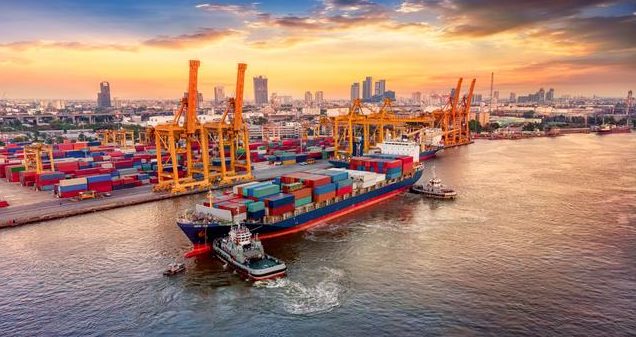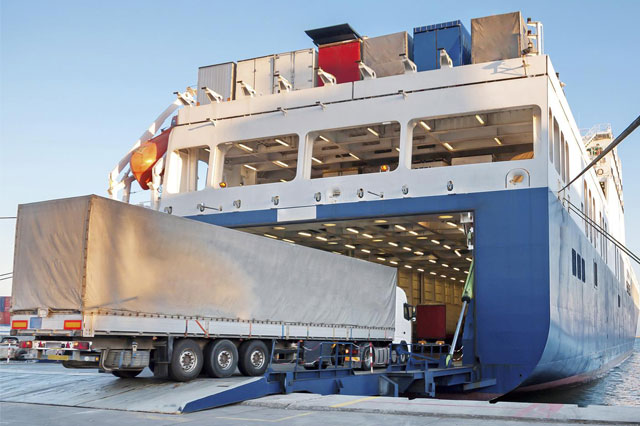Post-Brexit and post-pandemic, UK companies are in surprisingly good shape and keen to grow exports revenues, despite growing fears for non-payment and insolvency risk. According to the Allianz Trade Global Survey 2023, UK exporters remain cautiously optimistic about export revenues, with 83% expecting growth in export turnover in 2023, the highest of all the seven countries covered by the survey, and well above the global average of 71%.
Reflecting the less favourable environment for global trade in 2023, however, most UK companies (57%) expect a moderate increase in export turnover of between 2% and 5% after two years of double-digit growth. Allianz Trade expects global trade to grow slowly in volume terms (+0.7% vs. +3.8% in 2022) and to decline in USD terms (-0.1% vs. +9.7% in 2022).
“UK exporters have proven themselves to be surprisingly resilient in maintaining order books, despite the headwinds from high inflation, energy and transportation costs and the shortage of skilled labour. We’ve seen supplier delivery times shorten amid an upturn in raw material availability and this has managed to bring down some of the cost pressures. Many have shown they’re able to refinance and manage their working capital position very well, and remain competitive when it comes to exporting into overseas markets, in mainland Europe and further afield,” says Shannon Murphy, Assistant Head of Risk Underwriting at Allianz Trade UK & Ireland.
Opening new export markets for UK export businesses
The Allianz Trade Global Survey 2023 reveals that UK companies are more likely to expand in existing export markets, although many are willing to explore new territories. Just over half (51%) of corporates plan to gain further market share in existing markets, while 49% want to diversify and target new countries.
Post-Brexit, the UK government has been actively looking to open new markets for UK exporters and to remove barriers to trade. In fact, the survey found that negotiating new trade agreements is the public policy measure most urgently needed by UK exporters. This is understandable given Brexit and the 2.5 times global increase in protectionist measures since the pandemic.
Since leaving the EU, the UK has signed trade agreements with Australia, New Zealand and Singapore, with others in the pipeline. The UK is also expected to formally join the Comprehensive and Progressive Agreement for Trans-Pacific Partnership (CPTPP), a free trade agreement between 11 countries in the Asia-Pacific region, later this year. The agreement, which would give UK exporters almost duty-free access to around 500m consumers, could generate approximately USD562.1m in annual export gains for UK exporters.
“Despite the challenges, there are plenty of good opportunities out there in export markets, especially for those companies selling more bespoke or added value products. UK exporters have a reputation for quality and tend to offer a premium product, and once they have a foothold and have proven their quality and reliability, they can sustain strong export order books based on repeat business,” says Shannon.
Energy and supply chain fears cited as top export challenges
High energy costs were the number one challenge impacting export activity in 2023, cited by 73% of UK exporters in the Global Survey, with over half (57%) saying they have been disrupted by the energy crisis. Energy price subsidies are the second most urgently needed public policy measure, behind new trade agreements, according to survey respondents.
“Energy costs have been a key factor for UK exporters, putting additional pressure on energy-intensive businesses and manufacturers. Transport costs have eased, but we continue to see pressures on skilled labour. Some companies are reluctant to cut costs and shed staff despite a falloff in order books, looking to retain skilled people ready for a recovery,” says Shannon.

Supply chain disruption, while having eased in 2022, also remains a key concern for exporters, with 73% of UK respondents citing shortage of inputs (73%) as their main challenge, just behind energy costs, and ahead of political risk (71%). However, just 25% of UK exporters said they plan to relocate production or find local suppliers against 40% in the US. Supply chain diversification seems to be the preferred strategy for UK exporters, with more of them scouting new suppliers in Western Europe, APAC and North America than their peers.
Non-payment risk increasing for exporters
A global pandemic, soaring inflation, labour shortages, supply chain issues, rising interest rates and international conflict have conspired to create a challenging global business environment, which is expected to lead to heightened credit risk for exporters. Some 43% of UK exporters in the Allianz Trade Global Survey 2023 expect an increase in the risk of non-payment in 2023, a big jump from 27% last year.
Growing fear of non-payment is in line with our outlook for global insolvencies, which we expect to surge by +21% in 2023 and a further 4% in 2024. The UK alone is expected to experience a 16% increase. Over half of the countries analysed in Allianz Trade’s latest insolvency report are likely to see insolvencies exceed pre-pandemic levels, with the logistics, trade, accommodation, and food services sectors most likely to be impacted.
High interest rates will also heap further pressure on highly leveraged companies, particularly in countries like Italy and Spain. Next year will be a key year for SMEs in terms of debt maturing, while larger corporates – which typically have longer terms – are likely to see a debt bulge in 2026.
“The impact of higher interest rates has yet to work its way through. As companies come off more favourable fixed rate deals and as higher interest rates kick in, it will cause major issues for highly leverage companies, with increased debt servicing cost, and potentially putting banking loan agreements under pressure,” says Shannon.
Exporters face liquidity squeeze from longer payment times
Exporters are also having to wait longer to get paid, putting cash flow and working capital under strain. Half of UK respondents expect the length of export payment terms to increase, more than double 2022, while 44% expect payment terms increases of up to 30 days, well above the global average of 39% of companies.
Globally, Day Sales Outstanding (DSO) – the average number of days it takes on average for a company to get paid – increased by +5 days in 2022 to 59 days. This fast DSO increase suggests that more companies are, and will be, experiencing delays in receiving payments, which can result in cash-flow problems.
Longer export payment terms are coinciding with higher interest rates and an increased cost of export credit financing from banks. The lack of, or cost of, export financing was top of mind for exporters in the Allianz Trade Global Survey 2023, with 70% or more of respondents globally see it as having a moderate to significant impact on their export activity.
Payment terms are the most preferred option for 48% of UK exporters ahead of cash, Buy Now, Pay Later and bank loans. Interestingly, UK companies are increasingly turning to Buy Now, Pay Later schemes to finance their exports, which could unlock trade financing for SMEs that were previously shying away from global trade.
“More companies are turning to credit insurance for protection, and to gain access to local credit risk insights, market intelligence and economic research. We can support UK exporters with in-depth local knowledge and expertise, helping them understand and assess export risks and opportunities. Exporters that protect themselves against bad debts should also find lenders more supportive when financing export credit,” says Shannon.
Trade credit insurance for exporters from Allianz Trade
Our Trade Credit Insurance (TCI) protects your business by, among other things, checking customer creditworthiness, dealing with late payments or liquidations and handling claims and collections. For exporters, this gives you the peace of mind when trading internationally, maximising opportunities at home and abroad.



